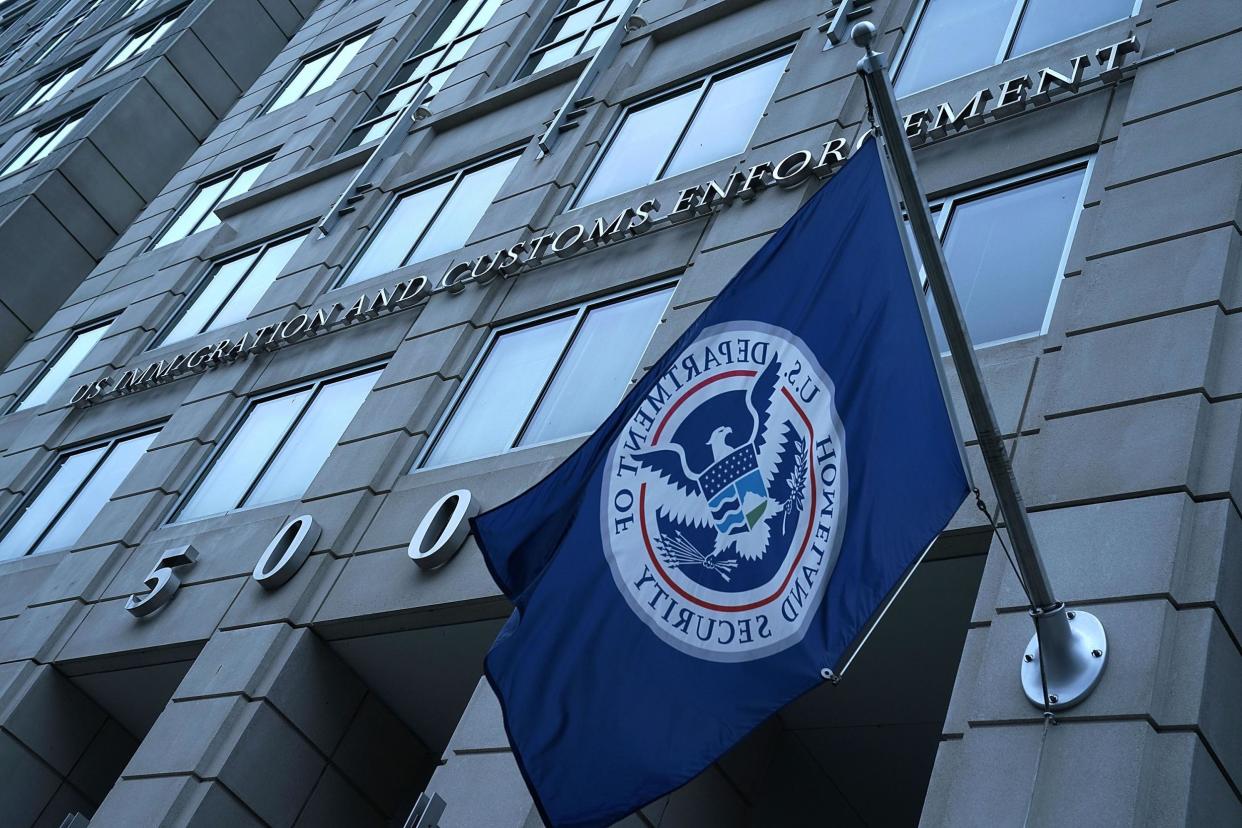Four members of Homeland Security Advisory Council quit in protest over Donald Trump's immigration policies

Four members of the US Homeland Security Advisory Council have resigned in protest of Donald Trump’s immigration policies.
The members announced their resignation in a scathing letter to Homeland Security Secretary Kirstjen Nielsen, citing the administration's “zero tolerance” policy that has resulted in more than 2,000 migrant children being from their parents at the US-Mexico border in recent months.
The committee members – including two former Obama-era officials – claimed they had not been consulted before the policy was implemented.
“Were we consulted, we would have observed that routinely taking children from migrant parents was morally repugnant, counter-productive and ill-considered,” they wrote, in a letter obtained by The Independent. “We cannot tolerate association with the immigration policies of this administration, nor the illusion that we are consulted on these matters.”
The signees included Richard Danzig, the Secretary of the Navy under President Bill Clinton, and Elizabeth Holtzman, a former Democratic congresswoman. The two Obama-era officials were David Martin, a former Department of Homeland Security (DHS) deputy general counsel, and Matthew Olsen, a former director of the National Counterterrorism Centre.
Tyler Houlton, a DHS spokesman, said in a statement that it was " that appointees from the previous Administration would resign their positions on the Homeland Security Advisory Council over enforcement of immigration law – as written and passed by Congress".
He added that was unfortunate that the committee members had resigned before discussing their concerns with Ms Nielsen, noting that the administration had put an end to family separations four weeks earlier.
Mr Trump ordered an end to the separations under immense public pressure last months, as shelters for minors filled up and videos surfaced of children crying after being taken from their parents. The administration is now struggling to reunite the families by the end of July, pursuant to a court order.
Mr Martin, the former DHS counsel, told The Independent that the committee members did not quit solely in protest of the family separations – it was simply "the final straw". The attorney said he had previously considered quitting when Mr Trump pardoned former Arizona Sheriff Joe Arpaio, who famously refused to follow court orders to end racial profiling in his department.
In a separate letter to Ms Neilsen, Mr Martin also took issue with the president's travel ban on residents of several Muslim-majority countries, the termination of the DACA programme for young immigrants, and Mr Trump's promises to build a wall on the US-Mexico border.
"These actions have fuelled polarisation, alienated state and local governments, and moved us much further from a sustainable, effective, and strategically sensible immigration enforcement program," he wrote.
Ms Holtzman also wrote a separate letter to Ms Nielsen, in which she harkened back to her time in Congress, when she co-authored the 1980 Refugee Act. The act – written with the backdrop of the Holocaust in mind – created the US's official procedure for the admission of refugees. In the years following, the US resettled millions of refugees from countries like Vietnam, Iraq, and the former Soviet Union.
Under the Trump administration, Ms Holtzman wrote, "DHS has been transformed into an agency that is making war on immigrants and refugees".
The Homeland Security Advisory Council conducts research on security issues and provides “organisationally independent” advice and recommendations to the homeland security secretary, according to its website.
Its members – comprised of leaders from state and local governments, first responder communities, the private sector, and academia – are appointed by the secretary for two-year terms. The full body meets no more than twice a year, while subcommittees meet more regularly.
The advisory council is far from the first to lose members during Mr Trump's presidency. Several members of the president’s Manufacturing Council and Strategy & Policy Forum resigned over Mr Trump’s response to a white supremacist rally in Charlottesville last summer, before the president disbanded the committees entirely.
Mr Trump also fired every member of his HIV/AIDS advisory council in December, after six members resigned in protest over the summer.
“I knew that the people that remained were speaking their truth, and I’ve got a feeling that was not appreciated,” Scott Schoettes, one of the members who resigned in protest, told The Independent at the time.
He added: “I think this is a President and an administration that doesn’t value dialogue and dissenting views.”

